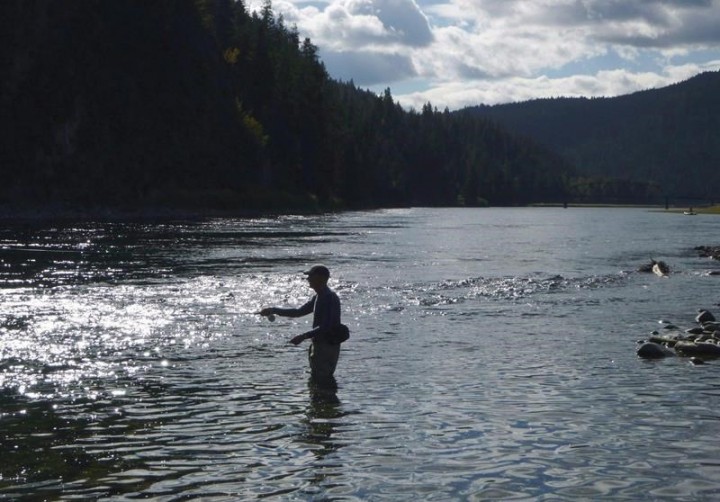First Nations and environmentalists say they are angry the federal and British Columbia governments continue to stonewall American requests for a joint investigation of cross-border contamination from coal mining as meetings of the panel that mediates such issues wrap up.
“They can sit on every fence they want, but at the end of the day, we’re going to do what’s right,” said Heidi Gravelle, chief of the Tobacco Plains First Nation, one of several bands upset over selenium contamination in southeastern B.C.’s Elk Valley from coal mines.
“We won’t stop.”
The International Joint Commission, the Canada-U.S. body that mediates water disputes, has been meeting in Ottawa this week.
Since May, it has been asking Canada to join with the Americans in an investigation, called a reference, of the Elk Valley issue. The reference is supported by the Biden administration, the Environmental Protection Agency, the states of Montana and Idaho, First Nations and environmental groups on both sides of the border, as well as the commission itself.
“The U.S. government continues to stress its strong interest in a binational reference to engage the (commission),” said commission spokesman Edward Virden.
Canadian governments are noncommittal.
“The Government of Canada is considering a variety of options … to address water quality concerns in the Elk Valley,” wrote Kaitlin Power, a spokeswoman for Environment and Climate Change Canada.
“Canada and the United States have not rejected the possibility of a reference to the (commission).”
B.C. doesn’t want the commission’s involvement, wrote David Karn on behalf of the province’s environment department.
“B.C. continues to be engaged with all parties and work to improve water quality in the Elk River Valley without the involvement of the International Joint Commission.”
The Elk Valley has long struggled with selenium contamination from coal mines owned by Teck Resources. Although Teck has spent more than $1 billion to try and fix the problem, levels of the element toxic to fish remain high in waters that flow into Lake Kookanusa, a reservoir that crosses the border between the U.S. and Canada.
Selenium in those waters already exceeds American levels. Groups from U.S. senators to tribal chiefs have written Canada’s federal government to complain.
Wyatt Petryshen of Wildsight, a B.C. group that monitors the issue, said the commission could create a watershed board to bring together all sides, as it has done for other watersheds elsewhere along the border including the Great Lakes.
He suspects that’s exactly what B.C. doesn’t want. Previous boards have raised obstacles to new development in watersheds such as the Flathead River, which reaches into southern B.C.
“It was recommended no more mines be put in the Flathead, which took that off the board for the B.C. government. B.C. doesn’t see a lot of motivation to see another watershed board.”
While the province and Teck are involved with numerous studies of the Elk Valley watershed, Petryshen and Gravelle said they aren’t getting enough access to the data they generate.
“We don’t want the pretty power points,” Gravelle said.
“We want the raw data. We want our people collecting it because then it doesn’t get skewed.”
There’s no timeline requirement for Canada to make a decision on whether it will join in with a reference. Proceeding without the involvement of both countries is highly unusual.
However, that doesn’t mean the issue can drift along forever, Gravelle said. She said her band is prepared to consider litigation.
“We want to work something out,” she said. “(But) at the end of the day, we’re going to do what’s right for all living things, not just economically.”
This report by The Canadian Press was first published Oct. 21, 2022.


































